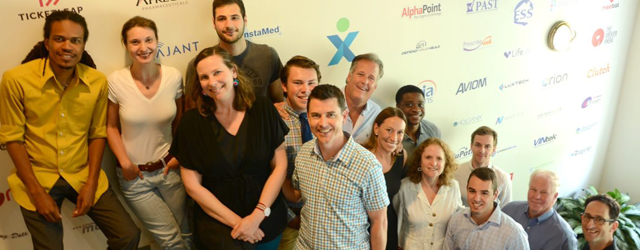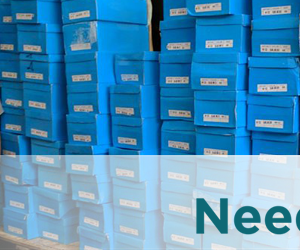At the PHL Innovation Picnic, we got a sneak peek at Philly’s fintech bullpen
As if school was letting out, the eight startups in Ben Franklin Technology Partners and Village Capital’s fintech accelerator broke free from their final session at BFTP’s Navy Yard HQ last Thursday to join the PHL Innovation Picnic.
It was a scene of leisure. FixList founder Stacey Mosley played beer-pong with BFTP’s new PR lead Amanda Wagner under the piercing sun. College Affordability’s Fred Amrein slayed his much younger opponents at cornhole. NeedsList’s COO Amanda Levinson gazed calmly over the sprawling Marine Parade Grounds lawn (where, it should be noted, the Technically Media team triumphed over Stitch to win the Field Day championship).
The event, which drew 900 attendees and raised $10,000 for three local tech education nonprofits, was an ideal scenario to check in with Philly’s budding fintech startups. Two from the cohort were celebrating more than just the warm summer day: AssetMap and NeedsList came out of the 12-week program on top, receiving $25,000 investment each.
“It’s made our business so much stronger,” Levinson said of the accelerator as she sought refuge under a leafy tree. “It was great to be in the investor’s seat and see so many people be passionate about their own company while helping us with ours.”
Following the VilCap model, it’s the companies themselves who chose the top two companies according to nine indicators of “investment readiness.” But NeedsList wasn’t always on top: It was the company’s June 20 beta launch (on World Refugee Day) that helped them climb up the ranking. Since launch, the platform has helped get 20,000 “needs” (supplies, like T-shirts, shoes and diapers) to refugees in need in four countries.
“For us it was less about the money,” said AssetMap founder Adam Holt. “It was more about spending 96 hours working with a community of creative fintech innovators. We should have paid them $25,000.” The company has been in a push to connect within the startup community, recently moving out of Bala Cynwyd and into an Old City office.
Easy to think that way once you have the cash, this reporter thought. With VilCap’s peer-reviewed model, one question that always stuck with me was: did the company’s that didn’t get the cash still think it was worth their time and focus? Particularly in an industry-specific setting like this, it may seem like a vote for the neighboring startup was a vote for the competition (even though “fintech” was kept purposefully broad in the selection process).
Read the full article here.




